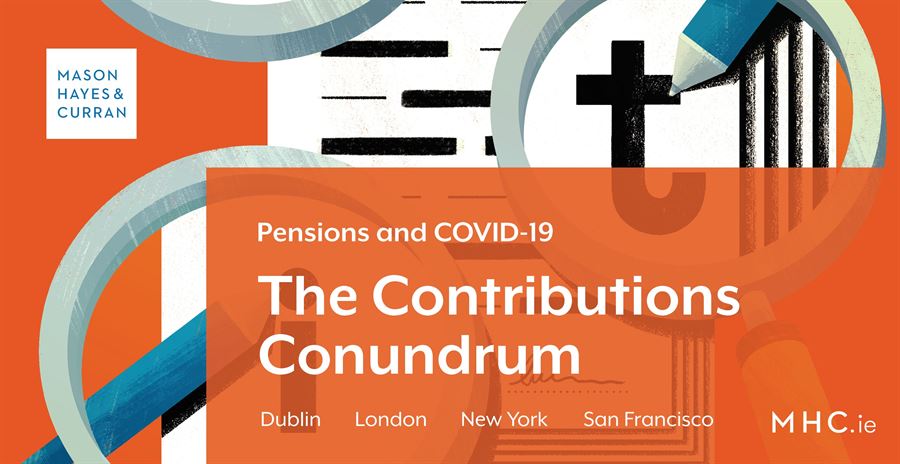
A suspension of the employer pension contribution can free up cash for many businesses, but it can also create significant issues for schemes that are already dealing with funding deficits. We look at some of the main issues faced by trustees where the sponsoring employer has made a request to suspend contribution.
Scheme documentation and legislation
Where a contribution holiday is sought by an employer, it will need to communicate with the trustees and put the case to them. If employers choose to act unilaterally and withhold payment, the trustees are obliged to report this failure to remit the contribution to the Pensions Authority. Trustees should consult with their legal advisors to ascertain what powers exist under the scheme documentation and relevant legislation. Where trustees exercise discretion they are not obliged to disclose the reasons for their decision to scheme beneficiaries. This permits trustees a good deal of independence and the freedom to move quickly.
For the purposes of convening a trustee meeting which aims to consider the employer’s proposal, the trustees will need to be appraised of the meeting formalities set out in the scheme documentation.
Employers
For any employer looking to suspend the payment of contributions, it is crucial that they obtain legal advice to understand their ability to do so and the powers that scheme trustees have in these circumstances. The employer will also need to consider its contractual arrangement with employees to ascertain if it is likely to find itself in breach of contract where it proceeds with the contribution suspension.
It is important to consider if any suspension of contributions would infringe on the Revenue requirement that employers make a “meaningful” contribution to the scheme. The employer and trustees will need to consider if any suspension could possibly jeopardise the ongoing Revenue approval for the scheme.
Implications for member pensions & the employer proposal
A short-term contribution holiday, if agreed, may not have a significant impact but if this were to be permitted for an extended period it may have a dramatic impact on pension values at retirement. Trustees must give significant consideration to the employer’s proposal. This is likely to involve an analysis of the employer’s ongoing viability and any proposal to reverse the suspension when the economy picks up. As well as knowing and understanding the employer’s business continuity plan it may be necessary to assess the strength of the employer’s covenant. All relevant information should be requested from the employer including details of any other steps that it is taking to deal with trade creditors or bank debt.
Conclusion
Where the trustees have been apprised of the legal position and are satisfied that the employer has provided enough information then their decision can be made. It is essential that all trustee communications with the employer are retained and any decisions made by the trustees are recorded in full. The circumstances of every case will be different and depending on the employer’s viability it may or may not be in the members’ interest to agree to the proposal.
Where agreement is reached, the terms of the contribution suspension will need to be formalised. Before any agreement is made the trustees will need to ensure that all expected contributions have been received within the statutory time limit and that there are no other outstanding concerns on the employer’s obligations to the scheme. Where the scheme has access to a contingent asset it would be prudent for the trustees to carry out an assessment of it to ensure that it is available as a resource of the scheme and capable of enforcement in accordance with the relevant terms.
For expert guidance on navigating the novel issues presented by the COVID-19 crisis, contact a member of our award winning Pensions team.
The content of this article is provided for information purposes only and does not constitute legal or other advice.
Share this:






